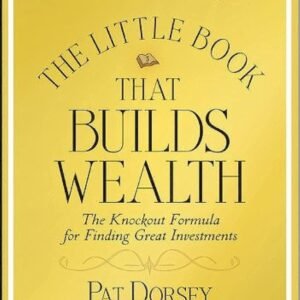Estate planning isn’t just about who gets what. It’s about control, dignity, and making sure your money actually helps the people you love.
We get it. “Estate planning” sounds like something reserved for people who live in mansions, host charity galas, and have their own monogrammed linens. But in reality, estate planning is something every adult, yes, every adult, needs to think about.
This week on the HerMoney Podcast, Jean Chatzky sat down with powerhouse elder law attorney and former New York State legislator Ann-Margaret Carrozza, who pulled back the curtain on the real risks of putting off this critical part of your financial life.
From the ins and outs of trusts, to the dangers of conservatorships, to protecting your home without giving up control, she shares the playbook we all need.
Estate Planning: Is A Simple Estate Plan The Right Move?
Jean Chatzky: Let’s talk about what people should do, and I’d like to take it in order of complication. Many people out there, a simple estate plan is going to be sufficient. Let’s talk about what a simple estate plan looks like these days and who that works for.
Ann-Margaret Carrozza: So, at its foundation, estate planning allows me to create documents called advance directives so that I can appoint folks who can ensure that my wishes are carried out later on if I am unable to do so. We want to have a healthcare proxy in place. You do not need an attorney to do a healthcare proxy. It is designed to be a DIY document.
We also want to consider a financial power of attorney so that if I am temporarily or permanently incapacitated, I can select the person who can make financial decisions for me. So we want to have the advance directives in place, and we want to have a will which lays out not only who gets what I have, but how they get it. So if I know in my heart that my 48-year-old son has not saved $5 toward his retirement, should I leave him his share of the estate outright? Probably not. I may want to consider customizing how he receives his interest. So we want to customize how they get it.
Trusts: Not Just For The Rich
Jean Chatzky: Let’s talk about the different kinds of trusts and who might need them. They’re irrevocable, revocable, testamentary living. Can you talk us through the main types and what makes sense for middle-income families?
Ann-Margaret Carrozza: A living revocable trust is very appealing psychologically. We create this document that allows us to retitle assets into it. So think of it like a little personal company. I can transfer property into it, and it will go automatically to my heirs at the date of my death.
In a revocable trust, I am the grantor. I’m setting it up. I will also be my trustee. So during my life, no one has any power to do anything with the assets in that trust other than me. Upon my death, the assets will go to whoever I’ve named as the beneficiaries on that living revocable trust.
If we have liability concerns, whether that is estate taxes, long-term care, or general trip and fall liability, we want to think about having a little bit of a stronger trust now. It does not have to be a totally irrevocable trust. A totally irrevocable trust is as rotten as it sounds. It’s an absolute disaster, and I don’t know why anyone would ever do a totally irrevocable trust. So between those two polar extremes, revocable and irrevocable, there are dozens of different types of trusts.
Your Legacy Is More Than A Number
Jean Chatzky: For people who are listening who feel like either they haven’t done an estate plan, or it’s been a lot of years since they looked at their estate plan, what are the best practices for when you need one and how often you should be revising it?
Ann-Margaret Carrozza: Don’t let the perfect be the enemy of the good. Don’t ignore it. Don’t put it off indefinitely. This is our last act as a parent, how we leave assets to the next generation. And the words last will and testament come from the Greek, and it means my last words and my last wishes. And we wanna be a little bit more creative than saying, “Mary, Susie, and Johnny, you split it equally. Good luck, Mom.” Right?
We want to be a little bit more nuanced and think about not who should get the assets, but how they should get them. And I want people to know they do not need to pay an attorney for all of this stuff. Once you take some action and inform yourself, you’re going to feel a little bit more power. And when we get rid of some of these things on our mental to-do list, we’re a little bit freed up, and I think we feel happier.
… Does more financial confidence sound good to you? We thought so! We’d love for you to join us at our two all-star hands-on financial wellness programs:
🚀 FinanceFixx – HerMoney’s 4 or 8-week Money Makeover financial coaching program that will help you get your finances on track!
📈 InvestingFixx – HerMoney’s investing club for women who are ready to learn market lingo, and grow their wealth. Your first month with us is completely free!
MORE ON HERMONEY:
More money news when you need it! Get the latest and greatest updates on all things investing, budgeting, and making money. Subscribe to the HerMoney newsletter at Hermoney.com/subscribe!



















Leave a Reply